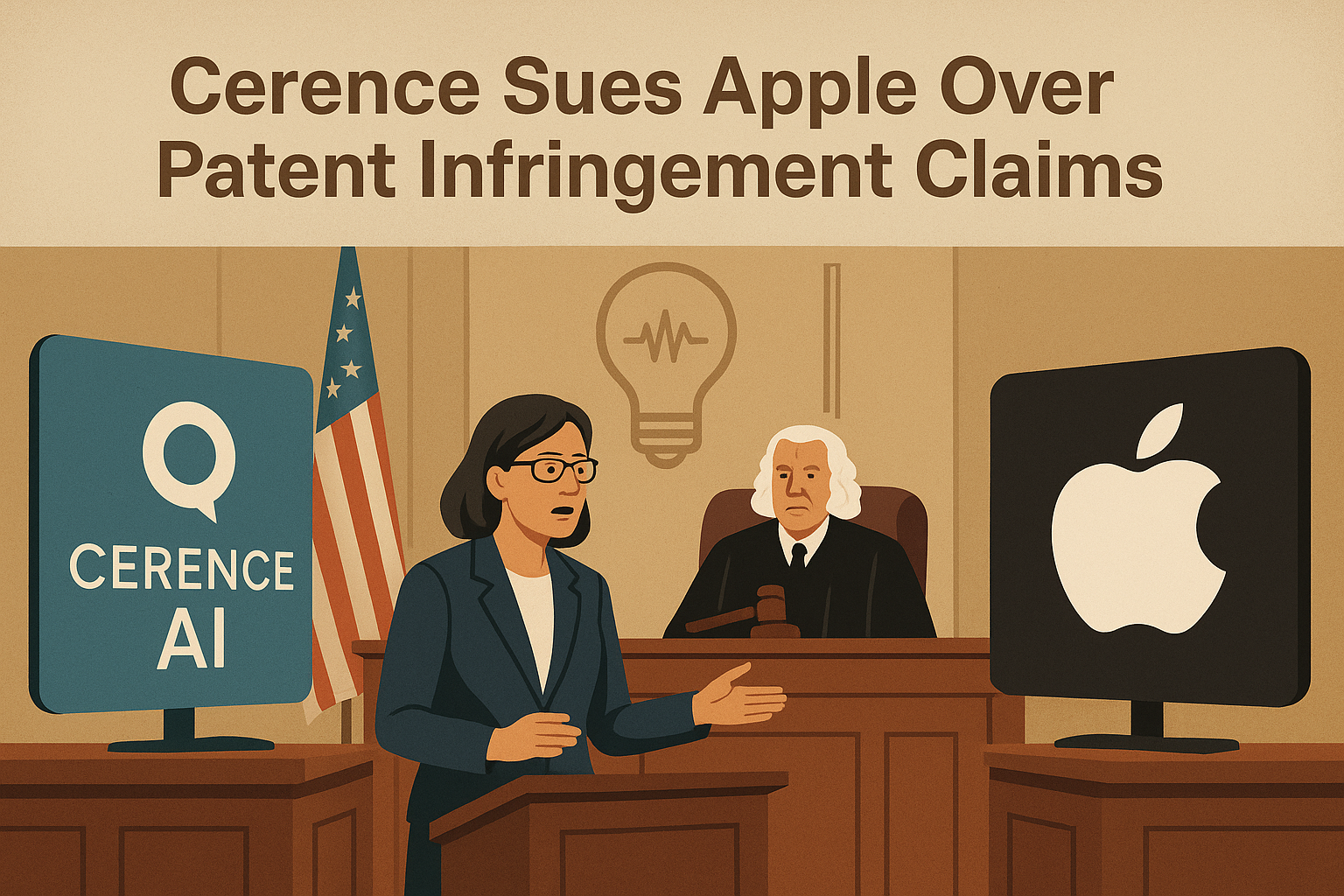Cerence AI has filed a patent infringement lawsuit against Apple, accusing the tech giant of using its innovations without permission. The case was submitted on September 4, 2025, in the U.S. District Court for the Western District of Texas, a frequent venue for intellectual property disputes.
Cerence’s Allegations
Cerence alleges that Apple misused its patented technologies. These patents focus on text input and recognition and voice command monitoring. The company claims Apple embedded these technologies in the iPhone and iPad without securing a license.
The dispute traces back to 2021 when Cerence approached Apple with an acquisition proposal. At that time, it presented detailed patent documentation and claim charts showing potential infringement. However, no agreement was reached.
Official Statement
Jennifer Salinas, Chief Administrative Officer and General Counsel of Cerence, stressed the importance of protecting innovation. She said the lawsuit aims to defend years of research and development. The company is seeking both damages and licensing fees.
Apple’s Response
Apple has yet to issue a detailed statement. Historically, the company has defended itself vigorously in patent cases. Analysts expect this lawsuit may become a drawn-out legal battle.
Industry Impact
Cerence is a leading player in automotive AI, powering voice assistants in over 525 million vehicles worldwide. The lawsuit underlines the growing conflicts between smaller innovators and global tech leaders over patented technologies.
Apple, already familiar with patent disputes, faces renewed scrutiny as courts decide whether its use of Cerence’s inventions violated intellectual property laws.
What’s Next?
The outcome of this case could force Apple to pay licensing fees or modify features in its products. For Cerence, a favorable ruling would strengthen its position as a pioneer in AI-driven communication technologies.

